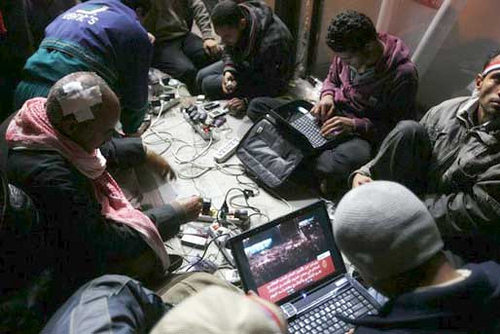
Egyptians are fighting for democracy and for their basic rights, and access to information is one of the core entitlements essential to any democratic system. However, when openness and transparency are mentioned, very few think of the right to access economic information. Along with transparency and independent media, guaranteeing citizens’ access to economic information is essential to enable their effective participation in the democratic process.
The right to information should allow the general public to have timely, accurate, clear, objective and complete information about government policies, programs and services as well as their outcome. Thus, consistent public reporting through periodical reports and statistical information is crucial to that end. In democracies, the government and its institutions must be visible, and the public has the right to see the government at work, to access its programs and services, and to assess its activities and judge its performance. Failing to protect this right to “know” and encourage public scrutiny in the new Egypt will bring the country back to square one. This is because democracies cannot function without transparency and accountability. Information on data-producing organisations and on available data and conditions of use should be clear and transparent. The lack of access to evidence and statistics from the official original sources also encourages the spread of rumors and inaccurate information, which adds to both the unrest and instability of the country.
Information is not only necessary for Egyptians to be able to actively participate in the democratic process, it is also essential to an efficient and well-functioning economy. Researchers and professionals working in or on Egypt are well aware of the difficulties of undertaking any quantitative work on the country, especially in the social sciences fields. Moreover, the scarce data that are available is often produced by international organizations and NGOs, who are finding it increasingly difficult to do their work.
So how can we expect a country to meet its challenges without widely available scientific research on crucial topics ranging from health care and education to natural and economic resources management? The quality and depth of this research and its ability to contribute to the policy making depends fundamentally on the diversity of studies and views and on the exploration of new topics, for which the most basic requirement is the availability of information and statistics. Modern improvements in information and communication technologies are making it easier to take full advantage of the information available to creative thinkers seeking to make scientific and intellectual contributions to society.
Image: 5535024492_0b4bc677de.jpg
